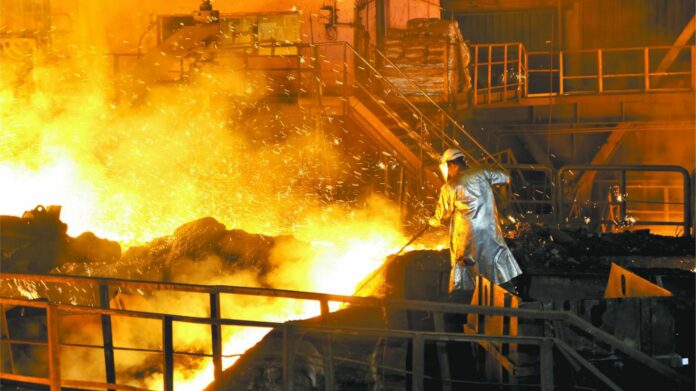v
Over 7,000 workers of the steel furnace industry in Gujarat have become jobless in the last three months. The figures were presented by the Gujarat Induction Furnace Association recently, adding that it is due to heavy decrease in the demand within the steel industry, among other things. The industry that is engaged with iron scraps is the latest one to report job cuts due to the economic crisis. According to the official data report, the growth of the country’s eight core industries has plunged drastically to 2.1% in July as against 7.3% in the same period last year. This included the steel sector industry which has registered a decline in production growth rate to 6.6%. The consequences of the industrial dip over the livelihoods of the workers can be ascertained by some fresh numbers said by speakers from distinguished field.
Inamul Haq Iraki, President of Gujarat Induction Furnace Association told media that this was bound to happen. He commented, “The effect on the steel furnace industry is a chain reaction caused by the downturn in the auto industry.”
“As there is a crisis in industries that consume steel, a demand slump can be observed in the steel industry,” he said, “as a result of which we have been hit tremendously as well.” Going further by the figures presented by the credit rating agency ICRA, the steel consumption in India is likely to grow at the slowest pace in the next three years. Iraki further said that out of the 150 units in the state of Gujarat that employed a total of fifty to sixty thousand workers, 50 have already shut down leaving many workers in the lurch. The remaining ones that are currently operational are cutting their production hours. “In my own unit, the number of workers has been reduced to half and the operations have been restricted to a single shift,” he said.
The unprecedented demand slump has raised red flags for the players in Gujarat’s steel furnace industry. The association has asked the state to intervene and provide concessions in electricity prices and increase in the export rates among other things to incentivise the units to continue the operations. Tata Steel, as it was reported, is now likely to revise its planned capital expenditure for financial year 2019-20 to ₹ 8,000 crore from ₹ 12,000 crore and JSW steel is to record a decrease in their earnings.
With bad news surfacing every day, it is now turn of the small and medium players to feel the heat of the crisis, relief from which is not in sight, at least not in the near future.
Nirmala Sitharaman announcement to revive economic growth in order to counter the slump in the economy, recently the Finance Ministry has taken a number of steps. Below mention are some announcements made for the revival of the economy:
BS4 vehicles purchased up to March 2020 will all remain operational for their entire period of registration.
To boost the auto sector, the government lifts the ban on government bodies from replacing the old vehicles. “Go and replace all your old vehicles,” the finance minister tells government bodies.
For infrastructure: Rs 100 lakh crore to be pumped in for infrastructure. A task force constituted to expedite the investment, task force funding the money and monitoring the process. Delay in the payment to be resolved on priority. Secretary expenditure, to look into it. Liquidity flow to be smoothened.GST
Refund for MSME will be time-bound now. All pending refund to be within 30 days from today. From now, for future GST refund, will be sorted within 60 days.
Within 15 days of closure of the loan amount, all papers to be given back to the customers. Banks to improve OTS settlement (One-time loan settlement), which will help MSME, by adopting check-box system, says FM
“The RBI has discussed and directed banks to release the benefits of changes in repo rates to the customers. The aim is to reduce the interest rate on housing and auto rates,” Nirmala Sitharaman said.
For the banking sector, the finance minister announced that the government is releasing Rs 70,000 crore, and additional lending to the tune of Rs 5 lakh by providing upfront capital to PSB. “It will strengthen and help corporate, MSME, retail borrowers and small traders,” says FM.
The government ends angel tax on start-ups.
Enhance surcharge on the FPI goes
CSR violations will not be treated as a criminal offence and instead be as civil liabilities
Labour law has been enforced, web-based jurisdiction, scrutiny, compounding of offences, self-certification are in place. Faster and quicker approval has been given for acquisitions and mergers. We are moving with a more human approach than the penalty.
GST will soon come up with fewer numbers of forms.
Several steps from the ease of doing business to ease of living.


















